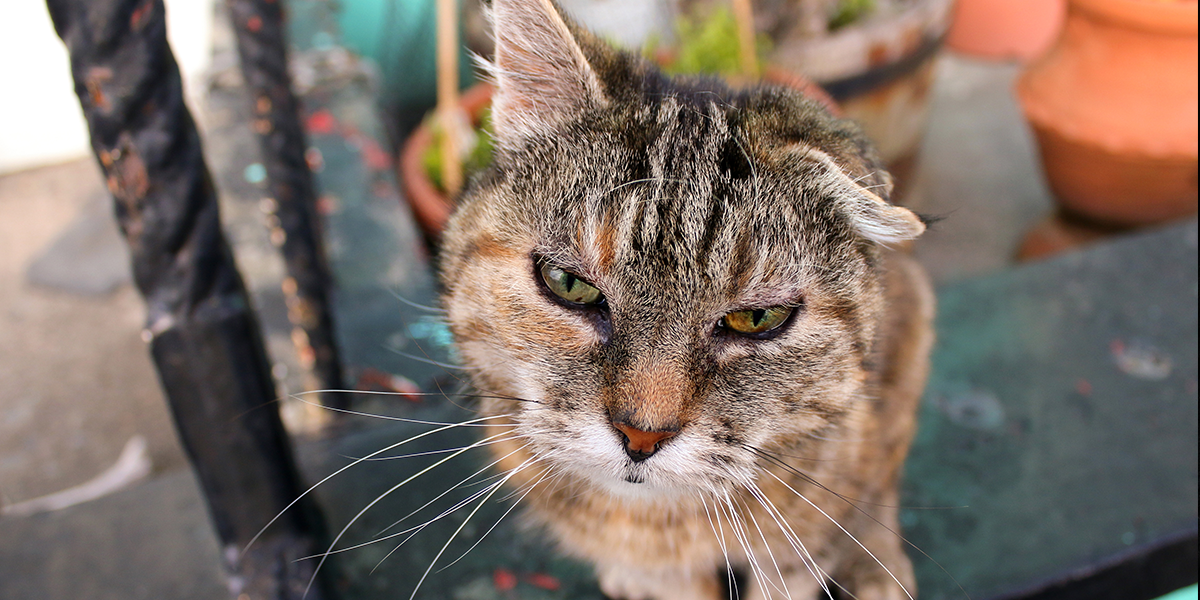
Some cats may show no visible hyperthyroidism symptoms which can make it difficult to diagnose in the first instance. In order to make sure your cat gets veterinary attention quickly it is useful to know the common symptoms of a neurological disorder in cats.

Hyperthyroidism overactive thyroid in cats.
Hyperactivity in cats symptoms. Is your cat stressed. Sometimes hyperactivity in cats can be stress related meaning there could be something in his surroundings that makes him anxious or stressful. Having said that this is harder to work out because you need to find what is causing him the stress or anxiety and probably the only way to do that is to place a camera in the home while.
The cat may spend more hours awake may meow excessively. Vomiting and diarrhea due to the hyperactive metabolism. The excess of thyroid hormones will lead to an excess of essential oils that are secreted by the skin.
The cat may have a greasy coat and this may also cause secondary skin infections and acne. Cat Hyperactivity High energy cats can be a big problem. Many feline trouble makers pounce on their sleeping owners making them cranky and tired.
Channel your cats exuberance into vigorous play at bedtime using feathers-on-a-stick laser pointer on the wall or fetch the bottle cap. Coat changes their coat may appear unkempt matted or greasy. In order to diagnose hyperthyroidism in cats your vet will first conduct a physical examination.
Extreme hunger your cat may eat so much that he vomits Increased thirst and urination. These symptoms tend to come on very quickly. We also may ask you about symptoms such as.
Changes in your cats meow because the thyroid is near your cats larynx you may notice that his meow sounds different Panting. In fact they can often lose weight while still eating more than their normal amount of daily food. When the problem becomes alarming you may observe the following symptoms of hyperthyroidism in cats.
Nervous or strange behavior. Neglected and knotted coat. All cats even the older ones pass more or less frequently through what we could call the cat insane hour easily recognizable because the cat suddenly and without the need for real stimulation adopts an attack posture with the.
Some cats may show no visible hyperthyroidism symptoms which can make it difficult to diagnose in the first instance. Some of the most common signs of hyperthyroidism to watch out for are. Increased appetite coupled with weight loss.
When a cat is suffering from hyperthyroidism their thyroid gland overproduces levothyroxine causing the metabolism to function on overdrive. Hyperthyroidism can cause cats to display symptoms of diarrhea increased thirst increased urination vomiting hyperactivity weight loss and increased appetite. While all cats may occasionally display sudden bouts of hyperactivity or odd behavior the behaviors displayed by cats with hyperesthesia are extreme and theyre accompanied by certain physical symptoms.
Cats suffering feline hyperesthesia may suddenly become inexplicably and intensely hyperactive and even aggressive. They may have extremely. When a cat is usually quiet and suddenly starts displaying more active behaviour accompanied by other symptoms such as weight loss lack of appetite hair loss and so on it may be due to a serious health problem.
Treating hyperactivity in cats. Fleas are another factor that might be making your cat hyperactive. Confusing ADHD with fleas can be troublesome.
When cats experience flea bites and itching they may constantly meow and become irritable. That may also be a reason why they exhibit petting aggression ie when you pat your cat it may scratch or hiss at you in return. Hyperkinesia hyperesthesia symptoms can also be caused by.
Skin conditions fleas allergies dermatitis skin infections. Cats of all ages are. In order to make sure your cat gets veterinary attention quickly it is useful to know the common symptoms of a neurological disorder in cats.
Symptoms of a Feline Neurological Disorder. Knowing what symptoms to keep an eye out for will allow you to get your cat medical attention and the treatment he needs. What are the symptoms of hyperthyroidism in cats.
The symptoms of hyperthyroidism in cats can be subtle in the early stages and may be similar to other common cat disorders like diabetes learn about diabetes in cats. Symptoms can become worse as the disease progresses. Increase in appetite although appetite has also been known to decrease.
Despite the lack of evidence cats have been known to display symptoms similar to those of people who have been diagnosed with ADHD. The Mayo Clinic classifies ADHD as a mental health disorder that is commonly associated with certain symptoms including hyperactivity impulsive behavior and difficulty paying attention to things. Most people begin displaying symptoms at a.
Hyperthyroidism overactive thyroid in cats. Hyperthyroidism means that too much hormone is being produced by your cats thyroid glands. Symptoms can include an increase in appetite weight loss and a poor coat.
The condition can be diagnosed with a. What Are The Symptoms Signs Of Hyperthyroidism In Cats. Typically the signs of hyperthyroidism develop gradually over a few months.
Often the cat carer notices a number of symptoms developing in their pet. Changes in the cats behavior and habits. A formerly placid easy going cat might become more agitated and more irritable.
Hyperactivity is a state of excess activity that may be manifested by symptoms such as. Fidgeting jumpiness nervousness or. It is often accompanied by difficulty concentrating or focusing on a task excessive talking or difficulty remaining quiet in school.
However it is important to distinguish true hyperactivity from the active and impulsive. Hyperthyroidism is a glandular condition that results from excessive amounts of thyroid hormones. The hormones are also called T3 and T4 and are a result of an overly active thyroid gland.
This gland which is within a cats neck region. The disorder is especially common in geriatric cats although it appears in felines of all age groups.